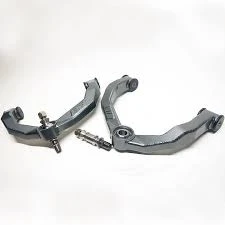
-
 Afrikaans
Afrikaans -
 Albanian
Albanian -
 Amharic
Amharic -
 Arabic
Arabic -
 Armenian
Armenian -
 Azerbaijani
Azerbaijani -
 Basque
Basque -
 Belarusian
Belarusian -
 Bengali
Bengali -
 Bosnian
Bosnian -
 Bulgarian
Bulgarian -
 Catalan
Catalan -
 Cebuano
Cebuano -
 Corsican
Corsican -
 Croatian
Croatian -
 Czech
Czech -
 Danish
Danish -
 Dutch
Dutch -
 English
English -
 Esperanto
Esperanto -
 Estonian
Estonian -
 Finnish
Finnish -
 French
French -
 Frisian
Frisian -
 Galician
Galician -
 Georgian
Georgian -
 German
German -
 Greek
Greek -
 Gujarati
Gujarati -
 Haitian Creole
Haitian Creole -
 hausa
hausa -
 hawaiian
hawaiian -
 Hebrew
Hebrew -
 Hindi
Hindi -
 Miao
Miao -
 Hungarian
Hungarian -
 Icelandic
Icelandic -
 igbo
igbo -
 Indonesian
Indonesian -
 irish
irish -
 Italian
Italian -
 Japanese
Japanese -
 Javanese
Javanese -
 Kannada
Kannada -
 kazakh
kazakh -
 Khmer
Khmer -
 Rwandese
Rwandese -
 Korean
Korean -
 Kurdish
Kurdish -
 Kyrgyz
Kyrgyz -
 Lao
Lao -
 Latin
Latin -
 Latvian
Latvian -
 Lithuanian
Lithuanian -
 Luxembourgish
Luxembourgish -
 Macedonian
Macedonian -
 Malgashi
Malgashi -
 Malay
Malay -
 Malayalam
Malayalam -
 Maltese
Maltese -
 Maori
Maori -
 Marathi
Marathi -
 Mongolian
Mongolian -
 Myanmar
Myanmar -
 Nepali
Nepali -
 Norwegian
Norwegian -
 Norwegian
Norwegian -
 Occitan
Occitan -
 Pashto
Pashto -
 Persian
Persian -
 Polish
Polish -
 Portuguese
Portuguese -
 Punjabi
Punjabi -
 Romanian
Romanian -
 Russian
Russian -
 Samoan
Samoan -
 Scottish Gaelic
Scottish Gaelic -
 Serbian
Serbian -
 Sesotho
Sesotho -
 Shona
Shona -
 Sindhi
Sindhi -
 Sinhala
Sinhala -
 Slovak
Slovak -
 Slovenian
Slovenian -
 Somali
Somali -
 Spanish
Spanish -
 Sundanese
Sundanese -
 Swahili
Swahili -
 Swedish
Swedish -
 Tagalog
Tagalog -
 Tajik
Tajik -
 Tamil
Tamil -
 Tatar
Tatar -
 Telugu
Telugu -
 Thai
Thai -
 Turkish
Turkish -
 Turkmen
Turkmen -
 Ukrainian
Ukrainian -
 Urdu
Urdu -
 Uighur
Uighur -
 Uzbek
Uzbek -
 Vietnamese
Vietnamese -
 Welsh
Welsh -
 Bantu
Bantu -
 Yiddish
Yiddish -
 Yoruba
Yoruba -
 Zulu
Zulu
Race Car Control Arms - High Performance Suspension Components
Understanding Race Car Control Arms The Unsung Heroes of Performance
In the high-octane world of motorsports, every component of a race car plays a pivotal role in achieving peak performance. Among these components, control arms might not enjoy the spotlight like tires or engines, but their importance cannot be overlooked. Control arms are vital for maintaining wheel alignment, stability, and overall handling, directly impacting how a race car reacts on the track.
Understanding Race Car Control Arms The Unsung Heroes of Performance
One of the primary functions of control arms is to maintain the correct camber angle of the tires throughout the suspension's travel. This is crucial because the camber angle affects the tire's contact patch with the road, ultimately influencing grip and handling. With precise camber settings, a race car can achieve optimal tire performance, allowing drivers to navigate corners with precision and speed. Additionally, well-designed control arms can help in adjusting the caster angle, which affects steering feel and straight-line stability.
race car control arms

The geometry of control arms is also instrumental in managing suspension compliance. A well-engineered control arm can absorb shocks from the track while keeping the tires in contact with the pavement. This is particularly important during high-speed cornering, where uneven surfaces can challenge a driver’s control. By ensuring that the suspension system works cohesively, control arms help maintain traction, which is essential for any competitive racing environment.
Furthermore, the ability to customize control arms enables teams to adapt their cars to different tracks and racing conditions. Many teams utilize adjustable control arms to fine-tune their suspension settings, allowing for quick changes between races or practice sessions. This adaptability is crucial, as every race track presents unique challenges, requiring teams to be versatile in their setups.
In conclusion, while control arms may not be the most glamorous components of a race car, their role in enhancing performance is undeniable. They are essential for maintaining proper wheel alignment, improving handling, and ensuring tire contact with the track. Understanding the importance of control arms allows teams and drivers to appreciate the complexities of race car dynamics, ultimately paving the way for success on the racetrack. In the relentless pursuit of speed and performance, every detail counts, and control arms play a significant part in that journey.
-

 Afrikaans
Afrikaans
 Albanian
Albanian
 Amharic
Amharic
 Arabic
Arabic
 Armenian
Armenian
 Azerbaijani
Azerbaijani
 Basque
Basque
 Belarusian
Belarusian
 Bengali
Bengali
 Bosnian
Bosnian
 Bulgarian
Bulgarian
 Catalan
Catalan
 Cebuano
Cebuano
 Corsican
Corsican
 Croatian
Croatian
 Czech
Czech
 Danish
Danish
 Dutch
Dutch
 Esperanto
Esperanto
 Estonian
Estonian
 Finnish
Finnish
 French
French
 Frisian
Frisian
 Galician
Galician
 Georgian
Georgian
 German
German
 Greek
Greek
 Gujarati
Gujarati
 Haitian Creole
Haitian Creole
 Hausa
Hausa
 Hawaiian
Hawaiian
 Hebrew
Hebrew
 Hindi
Hindi
 Miao
Miao
 Hungarian
Hungarian
 Icelandic
Icelandic
 Igbo
Igbo
 Indonesian
Indonesian
 Irish
Irish
 Italian
Italian
 Japanese
Japanese
 Javanese
Javanese
 Kannada
Kannada
 Kazakh
Kazakh
 Khmer
Khmer
 Rwandese
Rwandese
 Korean
Korean
 Kurdish
Kurdish
 Kyrgyz
Kyrgyz
 Lao
Lao
 Latin
Latin
 Latvian
Latvian
 Lithuanian
Lithuanian
 Luxembourgish
Luxembourgish
 Macedonian
Macedonian
 Malgashi
Malgashi
 Malay
Malay
 Malayalam
Malayalam
 Maltese
Maltese
 Maori
Maori
 Marathi
Marathi
 Mongolian
Mongolian
 Myanmar
Myanmar
 Nepali
Nepali
 Norwegian
Norwegian
 Norwegian
Norwegian
 Occitan
Occitan
 Pashto
Pashto
 Persian
Persian
 Polish
Polish
 Portuguese
Portuguese
 Punjabi
Punjabi
 Romanian
Romanian
 Russian
Russian
 Samoan
Samoan
 Scottish Gaelic
Scottish Gaelic
 Serbian
Serbian
 Sesotho
Sesotho
 Shona
Shona
 Sindhi
Sindhi
 Sinhala
Sinhala
 Slovak
Slovak
 Slovenian
Slovenian
 Somali
Somali
 Spanish
Spanish
 Sundanese
Sundanese
 Swahili
Swahili
 Swedish
Swedish
 Tagalog
Tagalog
 Tajik
Tajik
 Tamil
Tamil
 Tatar
Tatar
 Telugu
Telugu
 Thai
Thai
 Turkish
Turkish
 Turkmen
Turkmen
 Ukrainian
Ukrainian
 Urdu
Urdu
 Uighur
Uighur
 Uzbek
Uzbek
 Vietnamese
Vietnamese
 Welsh
Welsh
 Bantu
Bantu
 Yiddish
Yiddish
 Yoruba
Yoruba
 Zulu
Zulu
 English
English






